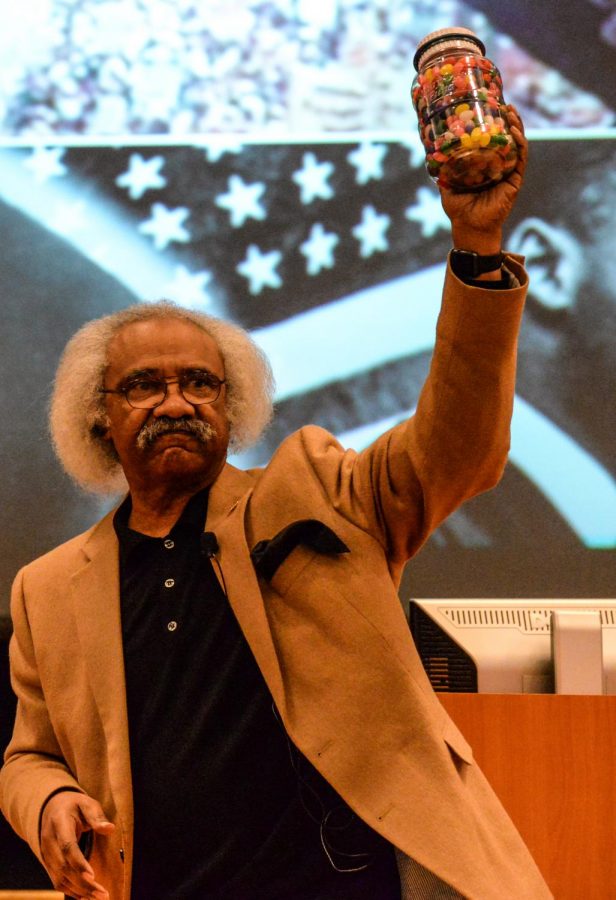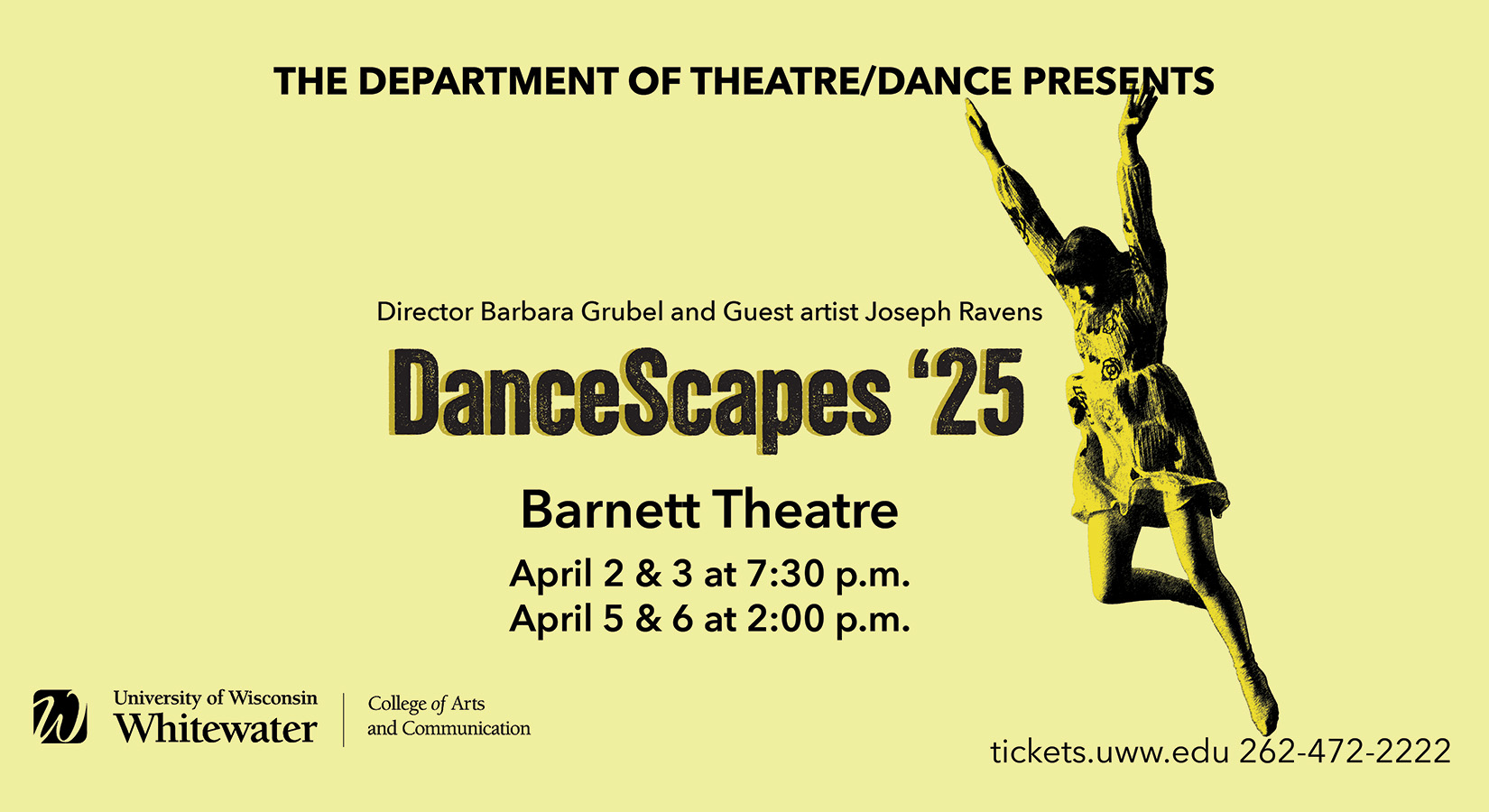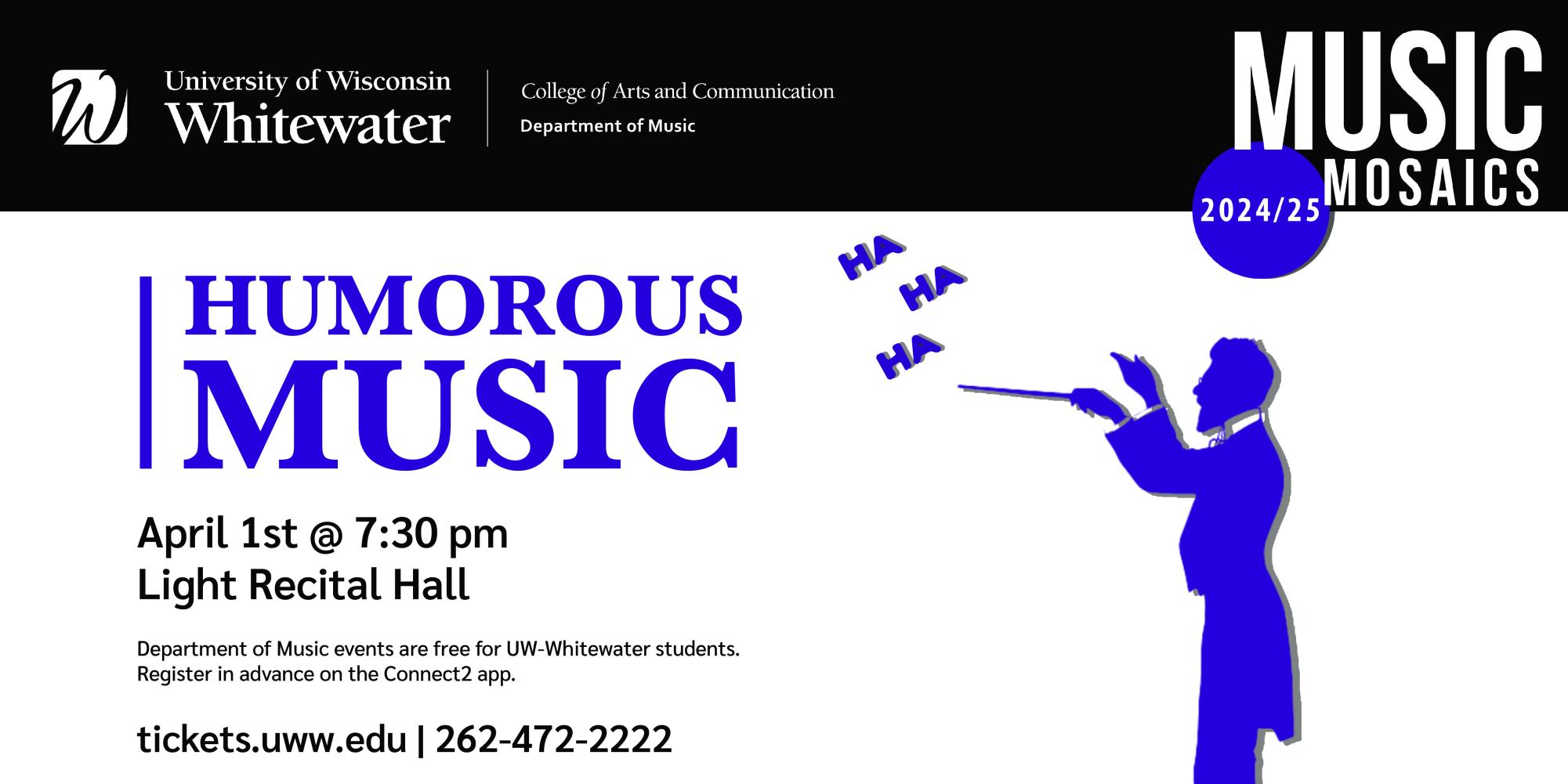Floyd Rose talks MLK, jellybeans with students
February 6, 2018
Dr. Floyd Rose paced the front of the Hamilton Room in the University Center Wednesday, holding nothing but a jar of jellybeans.
“How many jellybeans are in this jar,” he asked the crowd.
Multiple members of the crowd offered ideas, ranging from 200 to 1,500 beans.
“Here’s the thing,” Rose said. “I have no idea how many are in there. They used to have African Americans guess the same thing for the right to vote and the people at the polls had no idea either,” he said.
Rose visited campus for the 32nd annual Martin Luther King Jr. Commemorative Event, informing attendees on the activist and today’s issues.
Rose shared information about the reverend, including that his real name was Michael and that he entered college at the age of 15.
Rose is the president of the organization 100 Black Men of Madison Inc. and is an accomplished businessman. He has spent more than 40 years developing policies on sales, human resource management and more.
He is also part of a study group studying the Ku Klux Klan and the group’s presence at the University of Wisconsin – Madison.
Rose focused his talk on women who were impacted by MLK because he wanted to see how they were impacted by his work.
“We tell his story a lot, but we never really hear her story,” he said.
Rose spoke about Marcia Anderson, the first ever African American woman to achieve the rank of major general in the United States Army. He also spoke about other women in the speech, including his mother.
“My mother told me ‘when I was a little girl at a parade, your grandmother used to tell me not to mess up because if the police grab you there is nothing I can do.’”
The speaker told the crowd that the average family of six in Madison today consists of three female high school students, two babies, and one male, with no one over the age of 18.
“You’ve got to take extraordinary steps to do extraordinary things,” he told the crowd. “I’m not asking you to pity anybody, but rather empower them. Each and every one of you can do something about this issue,” Rose said.
“I challenge you to teach someone to read. Literacy is a huge problem in our country. If you can find one child, regardless of their race or gender and teach them to read, you are continuing Dr. King’s legacy.”
Assistant vice chancellor of student diversity, engagement, and success LaVar Charleston was very pleased to have Rose on campus.
“I have had the pleasure of going to a few of Dr. Rose’s talks in the past and so I thought it would be beneficial to bring him on campus to speak to our students and faculty,” Charleston said.
“I thought it was innovative,” he said. “He took some interesting angles talking about women, illiteracy and poverty. He had some really great ideas on how to create impact and change.”
Chancellor Beverly Kopper was happy with the campus’ ability to come together for the event.
“Any time that we can come together to celebrate the life of someone like Dr. King, that is part of what we do here at this university. We certainly value and are focused on being a very diverse student population and faculty and it is something that is very important to our university,” Kopper said.
Charleston said the university is hosting an event on Feb. 15 that will bring students, faculty and community members together to figure out what civil discourse will look like on campus.















Dr. Bernadette Anderson • Sep 28, 2019 at 10:28 pm
I was so greatly delighted to see that you had Dr. Floyd Rose grace your campus with his thought-provoking words of wisdom, innovation, courage, and character so unique to him. Dr. Rose is so very unique in his ways of engaging audiences of all ages, races, religions, socio-economic statuses, and sexual persuasions. He is Diversification at the core of its definition. For about 20 years he brought together hundreds of diverse business owners from across the United States and provided a platform that helped those business owners forge progressive relationships that have withstood the tests of time. I am thrilled that Dr. Floyd Rose remains a socially conscious catalyst students and faculty of higher learning. 9-28-2019